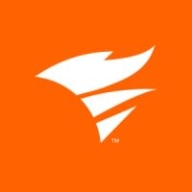

Find out what your peers are saying about Veeam Software, Zerto, Commvault and others in Backup and Recovery.

Oracle Data Guard ensures high availability, data protection, and disaster recovery for enterprise data. Data Guard provides a comprehensive set of services that create, maintain, manage, and monitor one or more standby databases to enable production Oracle databases to survive disasters and data corruptions. Data Guard can be used with traditional backup, restoration, and cluster techniques to provide a high level of data protection and data availability.
The storage monitoring and capacity management software from SolarWinds gives you deep visibility into the performance of your multi-vendor storage arrays, and helps you closely watch the application stack for storage issues that affect application performance.
We monitor all Backup and Recovery reviews to prevent fraudulent reviews and keep review quality high. We do not post reviews by company employees or direct competitors. We validate each review for authenticity via cross-reference with LinkedIn, and personal follow-up with the reviewer when necessary.